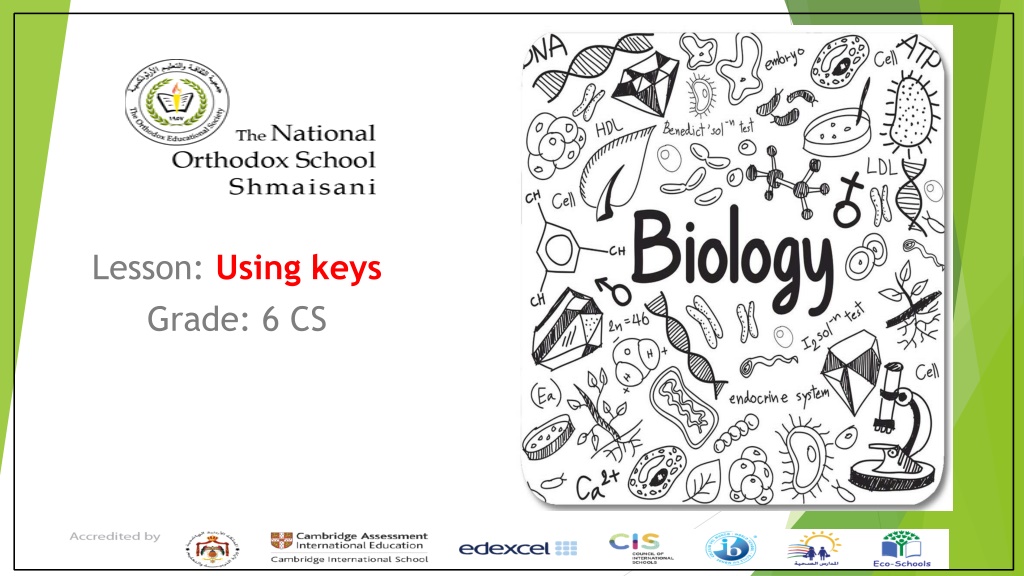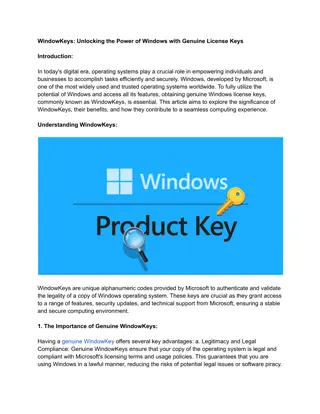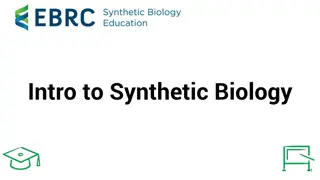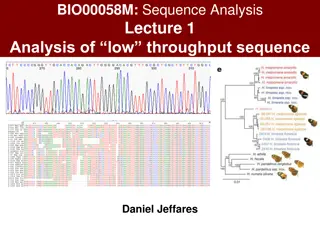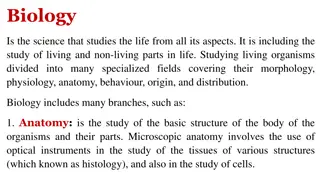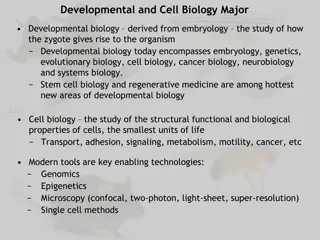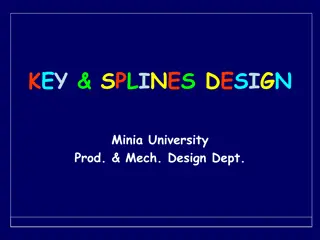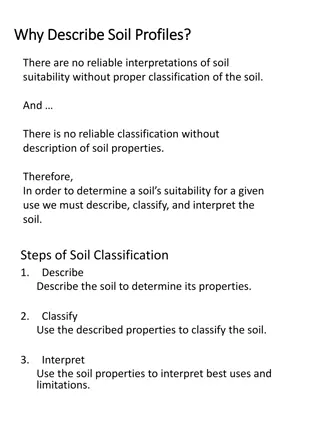Exploring Dichotomous Keys in Biology
Delve into the world of dichotomous keys with lessons on their types and practical application. Learn how to use these keys to identify various organisms and classify them based on specific characteristics. From distinguishing between different cat species to identifying aquatic organisms, this exploration provides a hands-on experience in biological classification methods.
Download Presentation

Please find below an Image/Link to download the presentation.
The content on the website is provided AS IS for your information and personal use only. It may not be sold, licensed, or shared on other websites without obtaining consent from the author. Download presentation by click this link. If you encounter any issues during the download, it is possible that the publisher has removed the file from their server.
E N D
Presentation Transcript
Lesson: Using keys Grade: 6 CS
Types of dichotomous keys Spider/ branched key Numbered key A key uses a series of questions to distinguish each species from the rest .
Victor uses three questions to distinguish these four cats .His first question separates them into two groups. His next questions separates the members of each group . Put the cats names into the correct boxes in the table below Leopard and cheetah Lion and caracal Lion caracal Leopard Cheetah
Diving beetle Leech Pond skater Fresh water shrimp Water spider
Use the key to identify the name of each organism. no no yes yes Earthworm
Ragworm Snail Slug Earthworm
Dragonfly larva Stonefly larva damselfly larva
D Arachnid Mollusk Crustacean Annelid
Anopheles Pediculus Pulex Ornithodorus Musca Periplaneta
A simple dichotomous key used to identify different groups of mammals is provided. An organism that gives birth to live young but does not possess a pouch and has no wings is discovered. Using this dichotomous key, determine which group it is most likely to belong to.
A simple dichotomous key used to identify different groups of mammals is provided. An organism that gives birth to live young but does not possess a pouch and has no wings is discovered. Using this dichotomous key, determine which group it is most likely to belong to.
